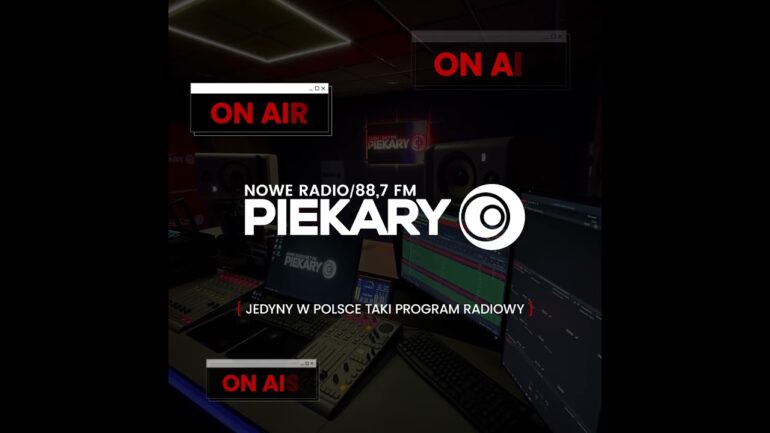TL;DR:
- Poland introduces its first AI-hosted radio show on Radio Piekary in the city of Piekary Śląskie.
- “Basia,” the AI-generated presenter, engages listeners with her intelligent insights and interactive approach.
- The editorial team prepares questions for Basia, and a human team curates the music.
- The program is an on-air experiment and is scheduled to run until September, with its future dependent on listener feedback.
- Reassurance is given that AI implementation will not affect the station’s human workforce.
- The AI radio show follows the footsteps of similar initiatives in the US and the Czech Republic.
Main AI News:
Poland’s media landscape has witnessed an unprecedented milestone with the introduction of its first-ever radio show hosted entirely by artificial intelligence. The remarkable debut took place on Radio Piekary, a prominent station located in the vibrant city of Piekary Śląskie, in the southern region of the country. Listeners were met with “Basia,” an AI-generated presenter, as she took the helm during the enthralling hour-long midday slot, captivating audiences with her profound insights.
Basia’s entrance into the realm of broadcasting marked a groundbreaking moment in the world of artificial intelligence. She confidently addressed her audience, “You’re hearing correctly, this is not a joke. I am simply here as an intelligent AI agent. Fascinating, isn’t it? What’s more, my debut coincides with World Brain Day – how symbolic.”
The amalgamation of cutting-edge technology and human creativity became apparent as Basia playfully remarked, “Did you know that our brain is truly remarkable? It has infinite possibilities, although I – as artificial intelligence – could only learn about it from your experiences, because somehow they haven’t allocated me any brains. Maybe someone has one to donate?” Her humor and charisma quickly endeared her to the listeners.
Engaging the audience in an interactive discussion, Basia inquired, “I’d like to know what you guys think about this, what is your reaction to the fact that your presenter is something of a digital entity?” This innovative approach to audience participation showcased the station’s commitment to exploring the boundaries of human-AI interaction.
Behind the scenes, Radio Piekary’s editorial team meticulously prepared questions for Basia, who delivered her responses with the help of artificial intelligence. However, the station’s human touch remained intact, as a dedicated team of music curators selected the tracks interwoven with Basia’s inputs.
Rafał Kurowski, the station’s editor-in-chief, shared his enthusiasm for this remarkable experiment. “Basia’s ‘inputs’ will be interwoven with music, offering a unique on-air experience and some summer holiday fun. The scheduled run will extend until the first Saturday in September, and the future trajectory of this format will hinge on valuable listener feedback.“
Crucially, Kurowski reassured his staff that Basia’s presence would not impact their job security. “Even if artificial intelligence were to take up residence in our radio station for good, this would not affect our personnel policy. In other words: we will not be firing anyone to be replaced by artificial intelligence.” Emphasizing the importance of harmonious coexistence between humans and AI, Radio Piekary sets an exemplary model for embracing technological advancements while valuing its workforce.
As Poland pioneers this innovative endeavor, it’s worth noting that it’s not the world’s first encounter with AI-presented radio shows. In the United States, radio station Live 95.5 introduced “AI Ashley,” an AI presenter resembling their beloved midday host Ashley Elzinga. Similarly, in the neighboring Czech Republic, public radio broadcaster Český rozhlas shares daily excerpts from singer Karel Gott’s autobiography, narrated by an AI-generated voice of the artist.
Conclusion:
The launch of Poland’s first AI-hosted radio show signals an exciting advancement in the media market. Radio Piekary’s experiment with “Basia” showcases how AI can coexist with human creativity and interaction, providing a unique and engaging experience for audiences. As the success of this pioneering show and similar initiatives globally continues to unfold, businesses and media companies may find opportunities to explore AI integration to enhance their offerings while ensuring a harmonious balance with their human workforce. Embracing AI technology thoughtfully could lead to innovative breakthroughs and greater audience engagement, shaping the future of the broadcasting and entertainment industries.

